Conrail. Milwaukee Road. Santa Fe. Rail Box. Anyone who watches freight trains is familiar with these and other names blazoned across the sides of freight cars. But that’s just advertising, which some companies omit for economy’s sake. And if a car changes hands, its new owner may not even bother to paint out the old […]
Magazine: Classic Trains
Freight car trucks and carbodies
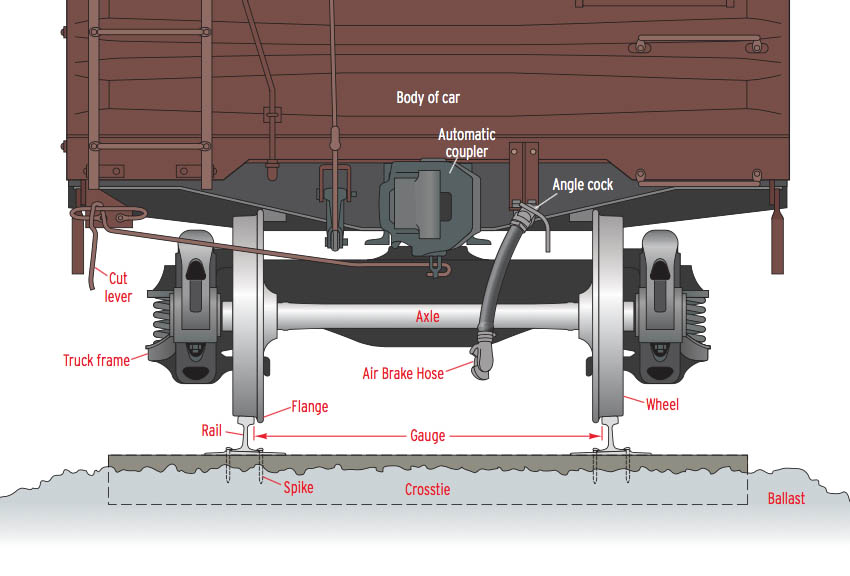
Car trucks and carbodies Do you remember running boards and full-height ladders on box cars? They are known in the railway supply trade as freight-car components, and while running boards and full-height ladders have followed the telegraph key and the steam locomotive into railroad technological history, other components remain as key elements of the freight […]
Introducing the horn section
Leslie and Nathan may sound like a dull couple from the ‘burbs, but they’re actually the first chairs in railroading’s horn section. The diesel locomotive horn section, that is. Many of today’s train-watchers recognize a railroad by the sound of its diesels’ horns. It’s only natural since sound is a strong memory-jogging sense, second only […]
Locomotive classification lights
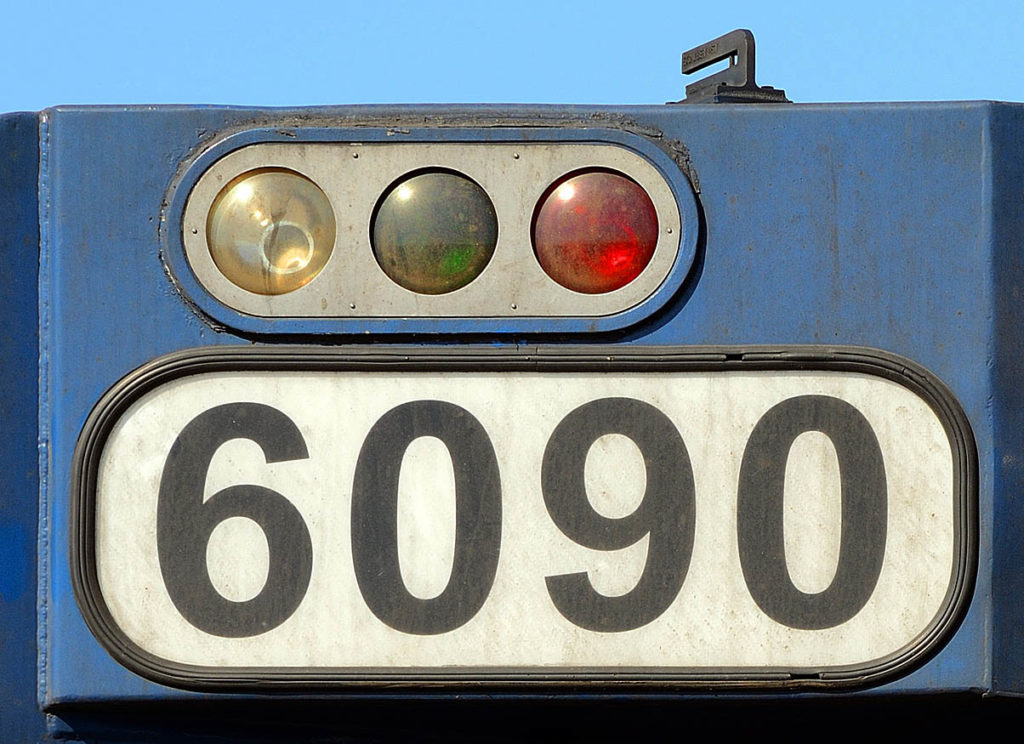
Locomotive classification lights Locomotive classification lights — colored flags by day, lights by night — were once used throughout North American railroading. U.S. railroads used a single light and outer lens, with colored lenses in between that could be changed as needed. Canadian roads used three separate lights; on diesels these were often located near […]
Mountain railroading terminology
Ruling Grade: The maximum meaningful grade on a line; the grade that limits train tonnage. Traditionally, a ruling grade was the grade up which the standard road locomotive assigned to that division could just stagger with a maximum-tonnage train. This grade may not have been the steepest on the division, however. There may have been […]
Outfit cars
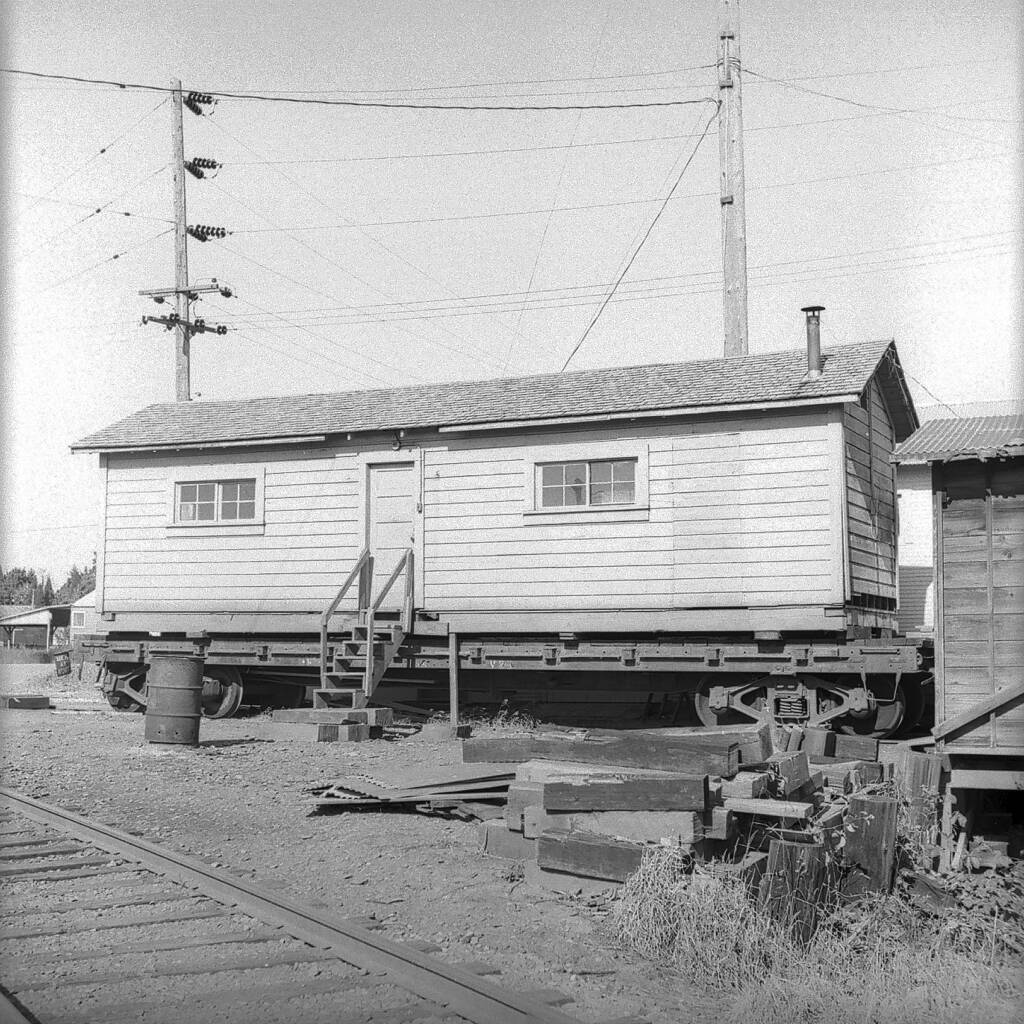
Outfit cars Cars equipped with facilities for feeding and housing construction and maintenance employees in the field are known as outfit cars or camp cars. Over the years they have taken a number of forms. Because outfit cars are not revenue-producing equipment, railroads have tended to not spend much money on them, and a common […]
Rack and cable railways
Virtually all the railways in the world employ the same system for moving the vehicles that travel over them: Power is applied to some or all of the wheels that support and guide the vehicle along the rails. Adhesion between the wheels and running rails then allows the vehicle to move along the track, often […]
Rail
Perhaps no part of railroading is as important as that which gave the industry its name: rail. Together with flanged-wheel vehicles, rails allowed the development of a transport system quite distinct from the conventional roadway. Though rails of steel are standard today, iron and even wood found widespread use in the 19th century. Many early […]
Railroad’s traffic control systems
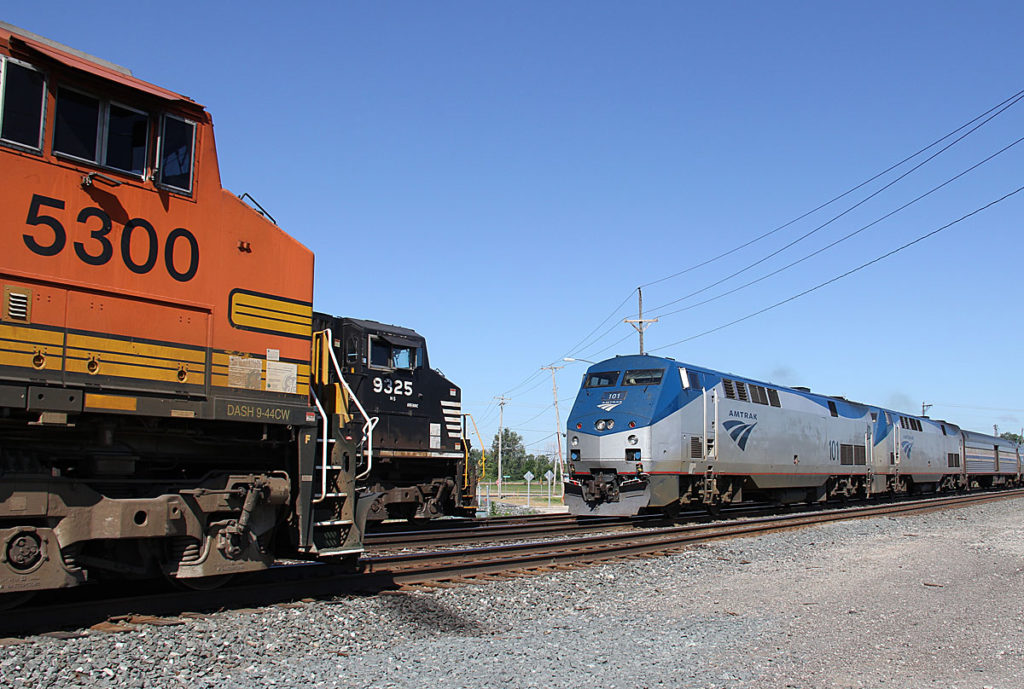
Traffic control systems Running a safe operation is not as simple as you might think. Every train must have authority to occupy the main track before it can begin moving. There are several types of authorities, but usually only one type is in effect on any given piece of track. Maintenance people must also have […]
Trackage and haulage rights
Because shippers’ distribution patterns are rarely congruent with any one rail carrier, railroads have developed two traditional methods of extending their reach over each others’ lines. The first is the joint rate and route. Two railroads, by agreement, establish one rate from an origin on the first to a destination on the second. One of […]
Classic Trains, Spring 2006
[…]
Classic Trains Index 2004-2005
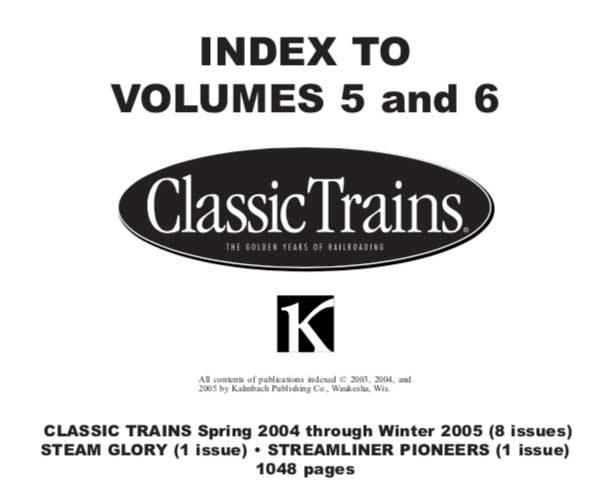
If you’re looking for an article from a past issue of Classic Trains, check out the annual index for 2004-2005. Classic Trains 2004-2005 index […]
